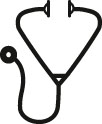Abstract

Introduction: Elranatamab (PF-06863135) is a humanized bispecific antibody targeting B cell maturation antigen (BCMA)-expressing MM cells and CD3-expressing T cells, resulting in T cell-mediated cytotoxicity. In the phase 2 MagnetisMM-3 (NCT04649359) study, elranatamab monotherapy was well tolerated and yielded an overall response rate of 60.6% at the recommended phase 2 dose in heavily pretreated pts with RRMM (Lesokhin et al, J Clin Oncol, 2022). MagnetisMM-5 (NCT05020236) is an open-label, multicenter, randomized phase 3 study designed to evaluate the efficacy and safety of subcutaneous (SC) elranatamab monotherapy or in combination with daratumumab in pts with RRMM. We report results from the safety lead-in cohort (Part 1) of MagnetisMM-5.
Methods: In Part 1, pts received SC elranatamab + SC daratumumab. Elranatamab was given with premedication and a 2 step-up priming regimen during the first week of Cycle 1, followed by full dose once weekly beginning C1D8 and continuing through C6, then every 2 weeks beginning C7D1 if PR or better for ≥2 mo. Daratumumab dosing was according to the US prescribing information. Two elranatamab dose levels were evaluated sequentially. Pts must have received ≥3 prior lines of anti-MM therapy, including lenalidomide and a proteasome inhibitor. Pts exposed to prior BCMA-targeted therapies were excluded. Dose-limiting toxicities (DLT) were monitored for a total of 42 days. Treatment-emergent adverse events (TEAEs) were graded by Common Terminology Criteria for Adverse Events (v5.0), and severity of cytokine release syndrome (CRS)/immune effector cell-associated neurotoxicity syndrome (ICANS) were assessed according to American Society for Transplantation and Cellular Therapy criteria. Response was assessed by International Myeloma Working Group criteria.
Results: As of Apr 11, 2022, 28 pts were enrolled and treated. Pts had a median (range) age of 68 (46-78) y. Pts had a median of 5 prior regimens, 18% had triple-class refractory disease, and 71% had prior autologous stem cell transplantation. After a median (range) treatment duration of 6.8 (0.1-23.1) wk, most pts (93%) experienced at least one TEAE; with 46% experiencing G3/4 TEAEs. The most common (≥20%) all causality TEAEs included CRS (50%; all G1-2), neutropenia (29%; 14% G3, 14% G4), and pyrexia (21%; all G1). No pts experienced ICANS. The majority of CRS events occurred after the first dose of elranatamab and no pts permanently discontinued study treatment due to CRS. The median (range) time to onset of CRS was 2 (1-4) d, resulting in elranatamab dose interruption in 7.1% of pts. No DLTs were observed. Promising early responses to elranatamab + daratumumab, including VGPR and sCR, were observed. Median time to response was 1 (1-3) mo. Response data will be updated at the time of presentation.
Conclusions: SC elranatamab + SC daratumumab demonstrated promising early responses with a manageable safety profile in pts with RRMM, consistent with the SC elranatamab monotherapy results from MagnetisMM-3. No DLTs were observed, and no pts experienced ICANS or ≥G3 CRS with the 2 step-up priming regimen for elranatamab. These results support continued development of elranatamab in combination with daratumumab for pts with RRMM. In Part 2 of MagnetisMM-5, pts will be randomized 1:1:1 to receive SC elranatamab monotherapy, or SC elranatamab + SC daratumumab, or SC daratumumab + oral pomalidomide + oral dexamethasone.
Acknowledgments: This study was sponsored by Pfizer. Medical writing support was provided by Simon Stones, PhD, of Engage Scientific Solutions, and funded by Pfizer.
Disclosures
Mellqvist:Sandoz: Consultancy, Honoraria; Sanofi: Consultancy, Honoraria; Amgen: Consultancy, Honoraria; Janssen: Honoraria; BMS: Honoraria; GSK: Consultancy, Honoraria. Trudel:Genentech: Research Funding; Sanofi: Honoraria; Forus: Consultancy; Janssen: Honoraria, Research Funding; AstraZeneca: Honoraria; Karyopharm: Honoraria; Takeda: Honoraria; Pfizer: Honoraria, Research Funding; Amgen: Consultancy, Honoraria, Research Funding; Roche: Consultancy, Honoraria, Research Funding; BMS: Consultancy, Honoraria, Research Funding; GlaxoSmithKline: Consultancy, Honoraria, Research Funding. White:GSK: Honoraria; Forus: Honoraria; Karyopharm: Honoraria; Janssen: Honoraria; BMS: Honoraria; Antengene: Honoraria; Takeda: Honoraria; Sanofi: Honoraria; Amgen: Honoraria. Alegre:Amgen: Membership on an entity's Board of Directors or advisory committees, Research Funding; BMS: Membership on an entity's Board of Directors or advisory committees, Research Funding; GSK: Membership on an entity's Board of Directors or advisory committees; Janssen: Membership on an entity's Board of Directors or advisory committees, Research Funding; Novartis: Membership on an entity's Board of Directors or advisory committees; Sanofi: Research Funding. Sunami:AbbVie: Research Funding; Celgene: Research Funding; BMS: Honoraria, Research Funding; Chugai: Research Funding; GSK: Research Funding; Janssen: Honoraria, Research Funding; Ono: Honoraria, Research Funding; Otsuka: Research Funding; Sanofi: Honoraria, Research Funding; Takeda: Research Funding. Leip:Pfizer: Current Employment, Current equity holder in publicly-traded company. Kudla:Pfizer: Current Employment, Current equity holder in publicly-traded company. Finn:Pfizer: Current Employment, Current equity holder in publicly-traded company. Koh:Sanofi Genzyme: Research Funding.
Author notes
 This icon denotes a clinically relevant abstract
This icon denotes a clinically relevant abstract
Asterisk with author names denotes non-ASH members.

This feature is available to Subscribers Only
Sign In or Create an Account Close Modal